Which of the following would undergo dehydration most readily
1-phenyl-1 butanol
2-phenyl-2 butanol
1-phenyl-2 butanol
2-phenyl-1-butanol
The correct Answer is:C
To determine which compound undergoes dehydration most readily, we need to analyze the stability of the carbocations formed during the dehydration process. The stability of the carbocation is crucial because the rate of dehydration is proportional to the stability of the carbocation formed in the rate-determining step (RDS) of the reaction.
1. Identify the Compounds:
The compounds given are:
- 1-phenyl-1-butanol
- 2-phenyl-2-butanol
- 1-phenyl-2-butanol
- 2-phenyl-1-butanol
2. Understand the Dehydration Mechanism:
Dehydration of alcohols typically involves protonation of the hydroxyl group (OH) to form a better leaving group (H2O). This is followed by the formation of a carbocation after the leaving group departs. The stability of the carbocation is critical for the reaction rate.
3. Determine Carbocation Stability:
- 1-phenyl-1-butanol: The carbocation formed here is a primary carbocation, which is less stable. It can gain some stability from resonance due to the phenyl group.
- 2-phenyl-2-butanol: This forms a tertiary carbocation, which is highly stable due to hyperconjugation and resonance from the phenyl group.
- 1-phenyl-2-butanol: This forms a secondary carbocation, which is more stable than a primary but less stable than a tertiary carbocation. It also has resonance stabilization.
- 2-phenyl-1-butanol: This forms a primary carbocation, which is the least stable of the options.
4. Compare the Stability:
- The tertiary carbocation (from 2-phenyl-2-butanol) is the most stable due to the maximum hyperconjugation and resonance stabilization.
- The secondary carbocation (from 1-phenyl-2-butanol) is less stable than the tertiary but more stable than the primary carbocations.
- The primary carbocations (from 1-phenyl-1-butanol and 2-phenyl-1-butanol) are the least stable.
5. Conclusion:
Since the rate of dehydration is proportional to the stability of the carbocation, 2-phenyl-2-butanol would undergo dehydration most readily due to the formation of the most stable tertiary carbocation.
Final Answer:
2-phenyl-2-butanol undergoes dehydration most readily.
The compounds given are:
- 1-phenyl-1-butanol
- 2-phenyl-2-butanol
- 1-phenyl-2-butanol
- 2-phenyl-1-butanol
Dehydration of alcohols typically involves protonation of the hydroxyl group (OH) to form a better leaving group (H2O). This is followed by the formation of a carbocation after the leaving group departs. The stability of the carbocation is critical for the reaction rate.
- 1-phenyl-1-butanol: The carbocation formed here is a primary carbocation, which is less stable. It can gain some stability from resonance due to the phenyl group.
- 2-phenyl-2-butanol: This forms a tertiary carbocation, which is highly stable due to hyperconjugation and resonance from the phenyl group.
- 1-phenyl-2-butanol: This forms a secondary carbocation, which is more stable than a primary but less stable than a tertiary carbocation. It also has resonance stabilization.
- 2-phenyl-1-butanol: This forms a primary carbocation, which is the least stable of the options.
- The tertiary carbocation (from 2-phenyl-2-butanol) is the most stable due to the maximum hyperconjugation and resonance stabilization.
- The secondary carbocation (from 1-phenyl-2-butanol) is less stable than the tertiary but more stable than the primary carbocations.
- The primary carbocations (from 1-phenyl-1-butanol and 2-phenyl-1-butanol) are the least stable.
Since the rate of dehydration is proportional to the stability of the carbocation, 2-phenyl-2-butanol would undergo dehydration most readily due to the formation of the most stable tertiary carbocation.
2-phenyl-2-butanol undergoes dehydration most readily.
Topper's Solved these Questions
- ALCOHOL, PHENOL AND ETHERBook:ERRORLESS Chapter:ALCOHOL, PHENOL AND ETHERExercise:Ordinary thinking (Ojective questions) Uses of Alcohol, Phenol and Ethers
Explore 20 Videos
- ALCOHOL, PHENOL AND ETHERBook:ERRORLESS Chapter:ALCOHOL, PHENOL AND ETHERExercise:Critical Thinking (Objective Questions)
Explore 17 Videos
- ALCOHOL, PHENOL AND ETHERBook:ERRORLESS Chapter:ALCOHOL, PHENOL AND ETHERExercise:Ordinary thinking (Ojective questions) Preparation of Alcohol, Phenol and Ethers
Explore 46 Videos
- ALDEHYDES AND KETONES Book:ERRORLESS Chapter:ALDEHYDES AND KETONES Exercise:JEE Section (JEE (Advanced) 2018) Numeric answer type question
Explore 1 Video
Similar Questions
Knowledge Check
Which fo the following would undergo dehydration most readily?
A1-pheny1−1butanolB2−pheny1−2-butanolC1−pheny1−2butanolD2−pheny1−1−butanolWhich of the following undergoes decarboxylation most readily on being heated?
A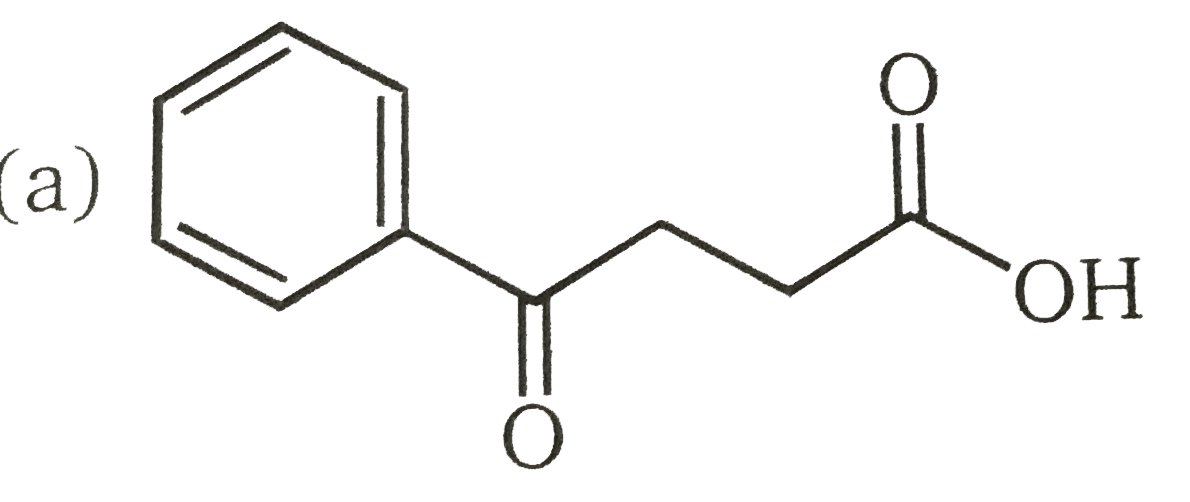 BC
BC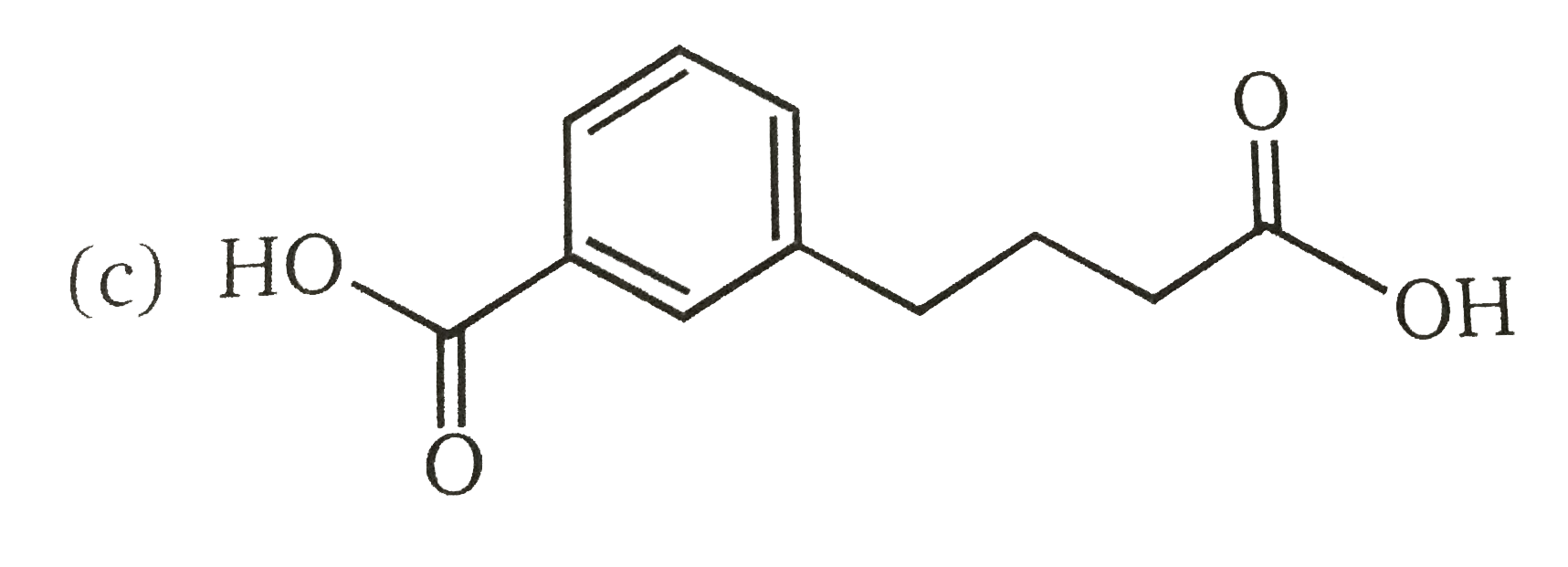 D
D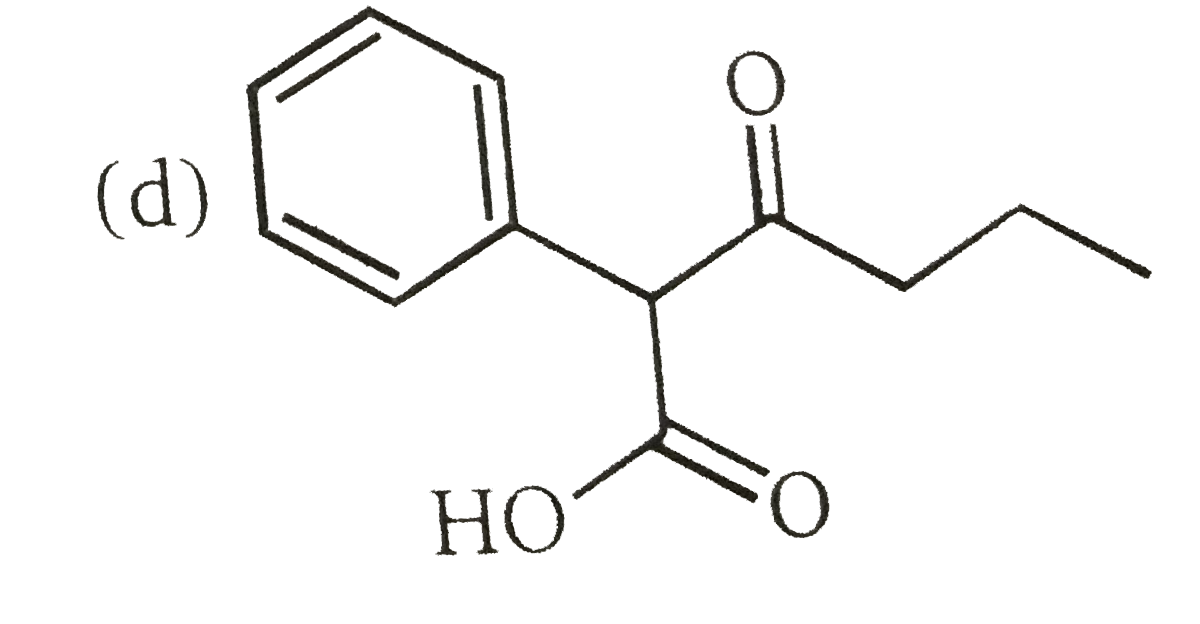
Which of the following undergoes decarboxylation most readily on being heated ?
A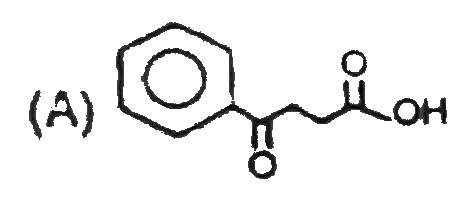 B
B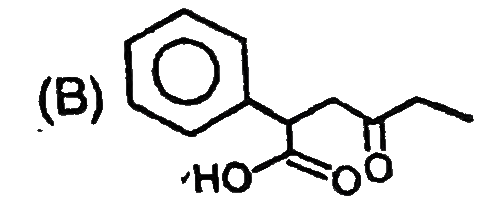 C
C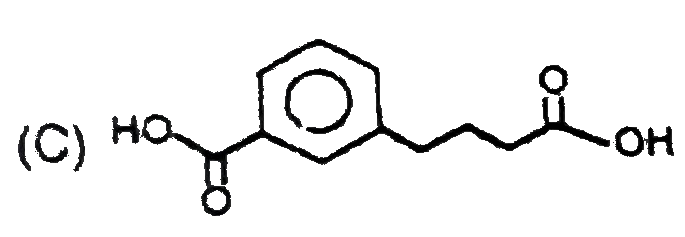 D
D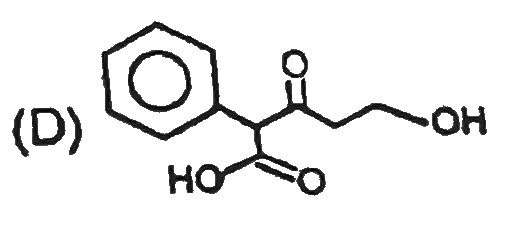
Which of the following will be dehydrated most readily in alkaline medium?
View SolutionWhich of the following will be dehydrated most readily in alkaline medium?
View SolutionWhich of the following will be dehydrated most readily in alkaline medium?
View SolutionWhich chloroderivative of benzene among the following would undergo hydrolysis most readily with aqueous sodium hydroxide to furnish the corresponding hydroxyderivative ?
View SolutionWhich chloroderivative of nitrobenzene among the following would undergo hydrolysis most readily with aqueous NaOH?
View Solution